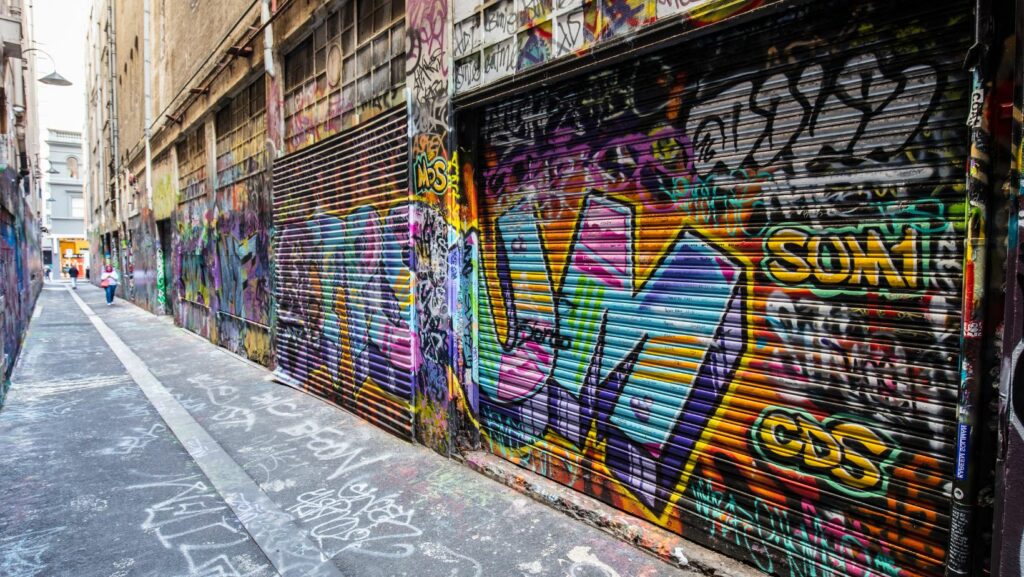Urban culture embodies the dynamic and ever-evolving lifestyle found in cities around the world. It’s a melting pot of diverse influences, from music and fashion to art and technology, reflecting the unique characteristics of metropolitan life. This culture thrives on innovation and creativity, often setting trends that ripple out to influence broader society.
What Is Urban Culture

Urban culture signifies the collective lifestyle and social behaviors unique to urban environments. It encompasses various elements like language, fashion, and music that distinguish city life from rural settings. Typically, this culture thrives on diversity and innovation, pulling influences from different ethnicities, histories, and subcultures found in bustling urban landscapes.
Key aspects include street art, often seen on murals and public spaces, showcasing creativity and social commentary. Music genres like hip-hop, born in city streets, reflect the dynamic rhythms of urban life. Fashion trends originating in metropolitan areas frequently set global standards, highlighting urban culture’s impact on the world.
Culinary diversity also plays a crucial role, with city dwellers enjoying a melting pot of flavors from food trucks and restaurants featuring global cuisines. The rapid evolution of technology in cities further shapes urban culture, integrating digital advances with everyday experiences and social interactions.
Social Movements
Social movements often gain momentum in urban settings, influencing public opinion and cultural norms. Cities are hotbeds for activism, where issues like climate change, gender equality, and racial justice are actively debated and addressed.
Urban Culture and Lifestyle
Urban culture manifests in various aspects, influencing daily lifestyles profoundly. The hectic pace of city life fosters a unique rhythm, where residents adapt to fast-paced routines. Diverse demographics contribute to a melting pot of customs and traditions.
Music and Entertainment
Music holds a central place in urban culture. Genres like hip-hop, jazz, and electronic music originate from urban settings, reflecting the city’s pulse. Live performances, street musicians, and festivals are common, offering continuous engagement with music.
Fashion Trends
Fashion in urban areas often sets global trends. Urban fashion merges diverse influences, creating distinctive styles. Streetwear, vintage clothing, and high fashion coexist, reflecting the city’s eclectic population and dynamic culture.
Art and Self-Expression
Urban environments are canvases for artistic expression. Street art, murals, and graffiti convey social issues and personal narratives. Public art spaces and galleries also thrive in cities, showcasing contemporary works that resonate with the populace.
Culinary Diversity
Urban culinary landscapes offer vast options. Fusion cuisine, street food, and international restaurants reflect the city’s diverse food culture. Cuisines from different cultures create a rich tapestry of flavors, catering to varied palates.
Technological Integration
Technology is integral to urban lifestyle. Smart city initiatives, digital services, and tech start-ups thrive, enhancing convenience and connectivity. Urban dwellers use technology for commuting, shopping, and socializing, embedding it into daily life.
Social Structures in Urban Culture

Urban culture features diverse social structures influenced by the high population density and cultural diversity of cities. Neighborhoods often form the foundational units of these structures, creating micro-communities within the larger urban environment. Societies in cities typically exhibit fluid social hierarchies, shaped by factors like occupation, education, and socio-economic status.
Peer groups play a vital role in urban social structures, often determining trends and norms within specific communities. For instance, hip-hop culture influences fashion and language among urban youth. Institutions like schools, workplaces, and recreational centers foster social interactions, contributing to the dynamic social fabric.
Urban Culture in Different Cities

Urban culture’s vibrancy and dynamism make it a cornerstone of modern city life. Each city, with its unique blend of influences, contributes to a global tapestry of creativity and innovation. The interplay of music, art, fashion, and technology shapes distinct urban identities, reflecting the diversity and complexity of city living.
From the bustling streets of New York to the vibrant neighborhoods of Tokyo, urban culture thrives on constant evolution. It’s a testament to human ingenuity and adaptability, continually pushing boundaries and setting new trends. As cities grow and change, so too does their cultural landscape, offering endless opportunities for exploration and expression.

